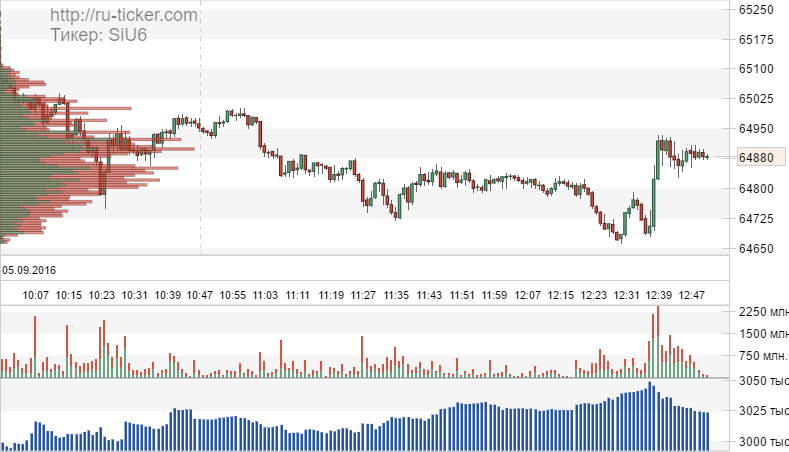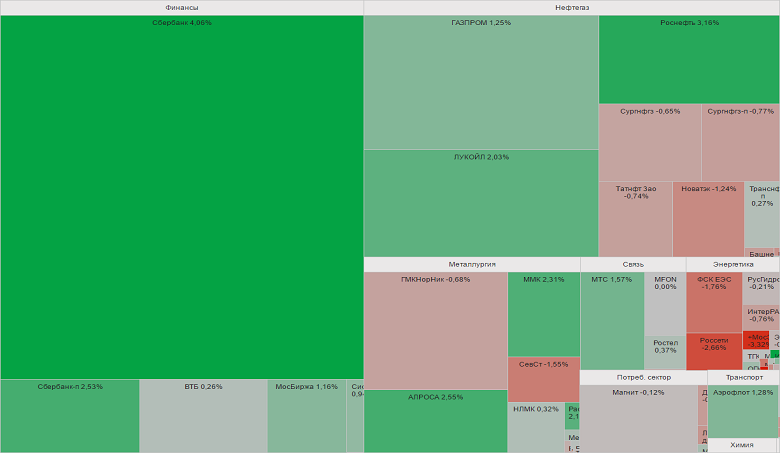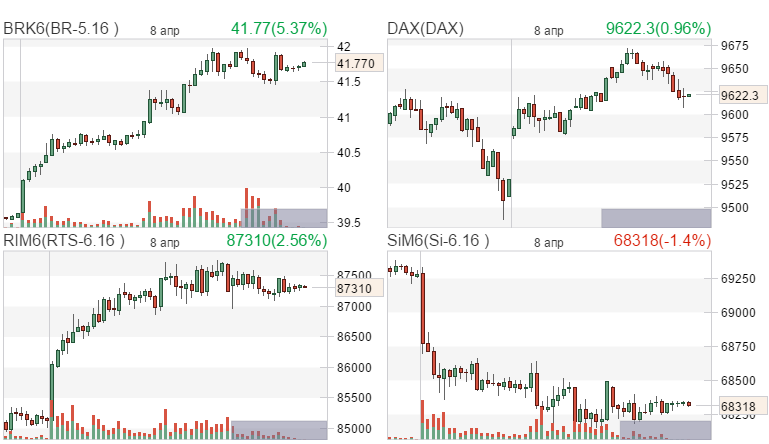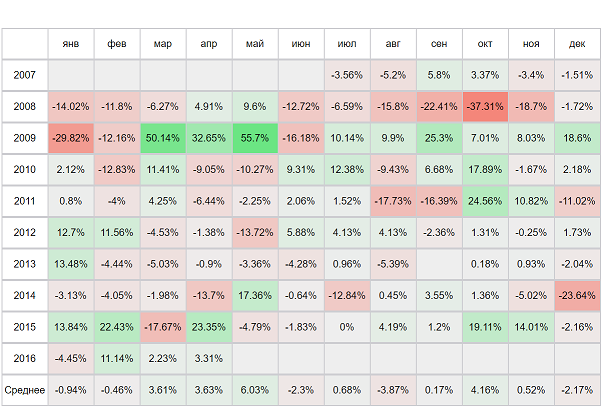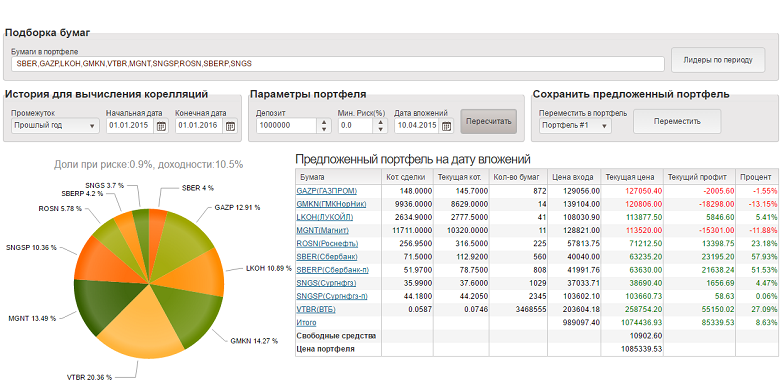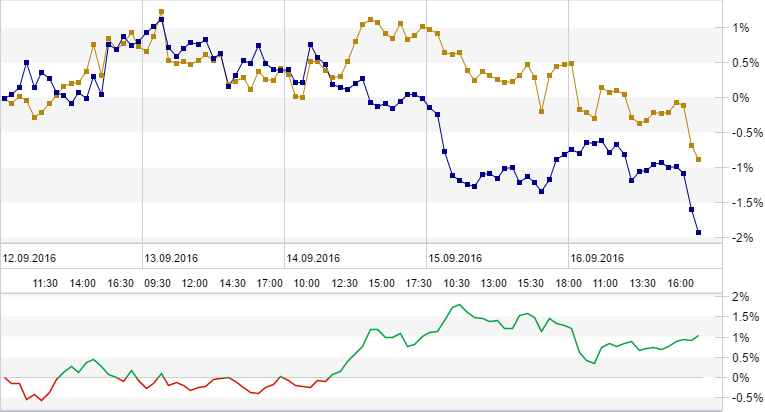 |  |  | |||||||||||
 |
|
||||||||||||
 |  |  | |||||||||||||||
 |
|
||||||||||||||||

Техническая поддержка
ONLINE
 |  |  | |||||||||||||||||
 |
|
||||||||||||||||||
What Happens When We Die? with Sam Parnia
ruticker 06.03.2025 12:21:05 Recognized text from YouScriptor channel The University of Chicago
Recognized from a YouTube video by YouScriptor.com, For more details, follow the link What Happens When We Die? with Sam Parnia
It's an experience every one of us is guaranteed to go through in our lives. It's inescapable, and so we often don't question it. We just accept it without wondering: *What exactly is death, and how do we know when it's happened?* In general, everyone who listens to this podcast—including I would say 99.9% of physicians, scientists, and so on—we're all conditioned by the way society views life and death in very clear, binary, separable ways. That's **Sam Parnia**, associate professor of medicine at NYU Langone, where he is also the director of research into cardiopulmonary resuscitation and the author of a new book, *Lucid Dying: The New Science Revolutionizing How We Understand Life and Death*. What I'm trying to illustrate to you is that actually the idea we have that there's a clear line that delineates life from death is a social convention. It is not grounded in the reality that exists in the human body—the mammalian body, I should say. The research by Parnia and others into resuscitation is completely revolutionizing what we mean when we talk about death. I'm an intensive care doctor, and my area of expertise is looking at the brain, how to restart the heart after people die, and how to preserve the brain so that they can come back to life and enjoy a meaningful life, work, society, and so on. Is it possible that we're accepting people are dead too early? That our view of when life ends is actually keeping people from possibly being brought back? And when we say "brought back," what do we mean? What happens to consciousness in the space between life and death? There is this perception that if you ask the question of what happens to consciousness after death, you're talking about something philosophical or theological. People have created these artificial borders where they sort of say, "Well, this is not science." Of course, it's science! I'm a physician; I deal with life and death all the time. The work I'm trying to do is trying to restore life in people after death. So in order for us to study this and make sure that we don't do any harm, but also recognize what happens to the individuals, we have to bring in the study of consciousness. Parnia has not only been pushing the boundaries on our understanding of death as director of the Human Consciousness Project at the University of Southampton, but he also conducted the largest study of people who recalled experiences of death and used AI technology to reveal some mind-blowing findings. Like it or not, science has moved into the postmortem period; science has moved into what people used to think was philosophy: *What happens after death?* --- **Welcome to Big Brains**, where we translate the biggest ideas and complex discoveries into digestible brain food. *Big Brains, Little Bites* from the University of Chicago Podcast Network. I'm your host, **Paul Rand**. On today's episode: *Using Science to Understand Death*. Big Brains is supported by UChicago's online Master of Liberal Arts program, which empowers working professionals to think deeply, communicate clearly, and act purposefully to advance their careers. Choose from optional concentrations in ethics and leadership, literary studies, and tech and society. More at [mla.uchicago.edu](http://mla.uchicago.edu). So I'm going to start with a really, hopefully, easy question to get us going: *What is death, and how do we know when it has occurred?* You know, Paul, one of the biggest things that we face every day seems very simple: *What is life? What is death?* The challenge that we have right now, because of advances in science and medicine, is that actually it's not as clear as people would think or would imagine. Science has shown that even after a person dies, the cells inside of the body do not suddenly decompose or degrade, and there is a fairly long period of time in which even the brain can be preserved after people have died. The reality is, once you go into the person's body and look at it more biologically, there is no clear line. What we do know is that there is a clear line when you extend hours of time. It's a little bit like saying if you and I were flying across the Atlantic, going from, let's say, New York to London. We know that in New York it's daytime and in London it's evening time—it's darkness. But when you fly, you start in light, and then somewhere along the line it starts to get progressively less light, more gray, and then eventually, at some point, it is total darkness. Right? But there isn't a line. Where would you draw that line? So we think in society we just think of the light and the darkness, and we think these things happen at exactly like immediately after each other. The point we're trying to make is that the human body, the mammalian body, the reality of science is that there is this transition from light to darkness, but it happens over many, many hours of time. That has clear medical ramifications for society because it means if you don't assume that you've reached darkness, if you recognize that there are still shades of gray, you can try to pull people back into the light when they've died. If you label people as "the end," you say, "Oh, that's the end," then you won't try because you think it doesn't exist. You know, almost all doctors, including even most neuroscientists and scientists who are trained, they're taught that after about five, maybe ten minutes of oxygen deprivation to the brain, the brain is irreversibly damaged and dies. Okay? And that is actually not true. That has been shown now for more than two decades to be not quite the whole truth of the story. There's been some research that you've done and others have done that really brings this all to life, and I'm thinking specifically of the work that was done by **Dr. Nenad Sestan**. It has to do with pigs, and I wonder if you can explain that study and give some background on it. Dr. Nenad Sestan, who's a neuroscientist at Yale, was also experimenting with the brain in the early 2000s onward and was interested to understand all the connections that exist in the brain. He wanted to find brain tissue that he could use, and he decided to work with a slaughterhouse for ethical reasons because he didn't want to kill animals. He asked if he could be given the brains that were being discarded after the animals had been killed and used for obviously making sausage and so on. Importantly, they collected these four hours after the animals were killed, and what they were able to then do—and they published this in 2019 in *Nature*—was they took 32 dead pig brains and connected them to a cocktail of drugs that have brain-preserving properties. They were given these drugs over six to ten hours. So now you're looking at pig brains from pigs that had died ten to fourteen hours earlier, and they were able to show that in all of these cases, they were able to restore brain function in those pig brains. That's just amazing! The brains of 32 dead pigs were connected to an artificial blood supply, pumping it around the organ, which in turn restored some activity in the brain cells. The surprise findings have raised hopes for medical advances and raised questions about the definition of death, which shows you that the brain had not died and that if you knew what to do, you could restore life to it. So let's pull that apart a little bit. Is there a difference between functioning and consciousness in this case? And if so, how do we understand the two? Well, consciousness is one of the most intriguing questions. You know, you and I are both conscious, thinking human beings, and in fact, all of us—everyone who's listening—everything that we do is actually reflected firstly from our own consciousness. We make decisions. You know, I made a decision to talk today; you made a decision to invite me. But of course, when you come to the hospital, we have ways of diminishing your consciousness from the outside perspective and diminishing your memory formations and so on. In other words, when we go for surgery, doctors will give us sedation or anesthetic agents that will put us into a deep sleep or into a coma of some sort, and so we lose awareness of our environment. In the study that was carried out with the pigs, one of the drugs that was given, if not more, was designed to preserve the brain but also had the effect that it would stop the brain signaling—the electrical signaling that goes across the whole brain, the cortex of the brain that we normally see when people are conscious, aware, and listening. If they did an EEG, a brain monitor of you and I, they would see those signals. But simply, those animals were given drugs that prevented those signals from being seen. So in a sense, think of it as if the animals were given an anesthetic while the brain function had been restored. And so what if they weren't given that drug? If they weren't given that drug, there was a huge concern that those animals may well become fully conscious again and aware of their environment, and that's why, in part, on ethical grounds, they were given those drugs. Wow! All right, well that's huge on many different levels. And of course, everybody listening is now saying, "Well, wait a minute, could this apply to humans?" And I think the answer is yes. You have to appreciate—I mean, this was the first time that this was done, and this is a huge leap for humankind. You can take a person who has been dead for many hours, and if you know what to do, what medications to give them, you can, in principle, restore life and restore activity to the brain, and importantly, without any brain damage. None of those pig brains had any signs of damage, and that was a key thing that came out of that. So the field of resuscitation—think of how huge this is! Think of all the people that you read in the news who are declared dead on the scene because of an accident, because of an unfortunate sudden heart attack. Right? You read, you know, ambulance crews arrived, they tried to resuscitate, they declare the person dead on the scene. If they knew that this kind of technology was available and we could implement it, then many of those people who were otherwise healthy, who died—youngish people, healthy people—could have their lives restored to them. This may be completely speculative, but in the case of the pigs, if they were brought back to consciousness, would it be the same animal that it was prior to death? Would it be the same being that it was prior to death? Well, you highlighted one of the key elements. You said to me, "What about consciousness?" Now, unfortunately, the way that people look at this today is still very much philosophical. It's not going to be a surprise if I tell you that talking about what happens with death and what happens after death is a highly controversial area because everyone has an opinion about it. But those opinions are grounded in their own personal beliefs, in their background, in their philosophy, in their religion, or lack of religion, whatever it may be. And most people, it's very hard for them to see this in a very neutral, unbiased manner. There are two categories of thought. One is that actually what makes Sam Parnia into who he is and Paul Rand into who he is, and every listener, is somehow produced by the brain. So somehow electrical or chemical processes in the brain lead to your thoughts, lead to your sense of awareness and your consciousness. The problem with that is there is no science that supports that. There is no evidence that shows us how—think about it—a single brain cell could suddenly, which normally produces proteins—anyone who studied cell biology will know even at high school cells produce proteins—so how can a brain cell that produces proteins suddenly lead to this incredible phenomena of thought and awareness? And that's called the problem of consciousness. There is no science to address it. Some people believe that if you somehow connect hundreds or hundreds of thousands or millions of cells together, essentially through circuits with electricity, that somehow magically you give rise to consciousness and thoughts. But again, that's really a deeply philosophical issue. There's no evidence to support that. There's never been an experiment, for example, that shows how brains or brain cells can generate thoughts. Thoughts seem to be a different type of matter to what brain cells and any cell in the body can do. Now, the other category of opinions, if you look at the scientific literature—and this includes Nobel Prize-winning neuroscientists like **John Eccles**—is that actually the brain is an important conduit, but actually your consciousness, your mind, who you are, is a separate entity that interacts with your brain. In the same way that when I go on my computer and I log on to the internet, my computer is not the source of the content of the internet. Without the computer, I cannot access it. So you need it, and if I damage my computer, I don't see signs of the internet, but it doesn't mean they're producing it. So what happens to this consciousness when we die? In the words of Shakespeare, *death is the last undiscovered country*. Parnia is starting to use the tools of science to explore the edges of it. *What happens after death?* --- **That's after the break.** How can we improve communications at work? Why did McKenzie's former CEO go to prison? How irrational are we really, according to Chicago Booth's Richard Thaler and Harvard's Steven Pinker? And are stock markets actually efficient? The *Chicago Booth Review Podcast* addresses the big questions in business, policy, and markets with insights from the world's leading academic researchers. We bring you groundbreaking research in a clear and straightforward way. Find the *Chicago Booth Review Podcast* wherever you get your podcasts. From most of human history, once a person has died, we assume that nothing would really be happening in their brains—that consciousness was like a light switch; it's either on or it's off. But with modern MRI and EEG machines, we've made a fascinating discovery: A few seconds after we die, there's an explosion of activity in our brains. They light up like a Christmas tree, especially in areas associated with dreaming and altered states of consciousness. Essentially, what has been discovered is that as people and animals die, the brain flatlines. As I said to you, most of the function is lost, but then suddenly, either five minutes before or up to five minutes after—but remember, these are very early studies; we don't know if this could extend longer—there is suddenly, in some cases, a sudden surge of brain electrical activity of a very high frequency that lasts for a very short period of time and then it's lost again. This may be a brain marker of people having these lucid, hyper-lucid, recalled experiences of death as they're going through from life into death itself. What could our consciousness be experiencing during this surge of energy? Parnia has conducted the largest study ever, interviewing people who have come back from the point of death, documenting what they experience and looking for patterns. The study is called *Aware 2*. The issue of life and death was pretty clear until the discovery of CPR. What happened is, looking back sort of about ten years after it became clear that many people who've survived episodes of getting close to death, or even their heart stopping and going beyond what I call the threshold of death, are recalling very vivid and universal experiences about themselves, which were labeled near-death experiences. The reason that term came about was because in the 1970s, people didn't realize that you could actually biologically go to death and beyond and be brought back to life again. So based on a philosophy that you could never come back from death, they were labeled near-death experiences. We don't think that term is accurate anymore, and the term that we now use is a *recalled experience of death*. What we know is that people who go into death—and this has been shown now through multiple studies, and we have conducted the world's largest studies, as you said—the *Aware 2* program involved more than 25 hospitals with 33 investigators, mostly in the US and the UK, but we've studied thousands of people whose hearts have stopped and who've had recollections. Incredibly, 15% of participants in the study reported having vivid recalled experiences of death. What we now know, which is fascinating, is that as people go through death, either just before their hearts have stopped or after their hearts have stopped, they go through an inner experience that is completely unique. So although from our perspective they look like they are not conscious and they're at best in a coma or they're going through death, from the person who's dying's perspective, they feel that their own consciousness is not annihilated; it exists, but it actually expands. They describe it as if it suddenly becomes vast—something they've never experienced before. At that same moment, they feel like they're able to gather information about what's happening to them, as if they're able to perceive from outside the body. They're able to describe what doctors and nurses were doing who were trying to revive them in accurate detail. But at the same time, they're also gathering information in sort of like 360 degrees. It's not like—it's more like a field of information that they're collecting rather than how you and I are looking at each other through a straight line. It's a whole mass of information that they're able to collect and both hear and understand and see what's going on. And then, incredibly, what they then undergo is an experience where they're able to relive every single moment of their life—everything that they have done. This is sometimes misrepresented as a sort of like, "It's as if your life flashes past you." That is not a correct description. What they're really experiencing is every interaction that they've had with other living beings, whether human or otherwise, and they're reliving what they did, but also reliving how the other person or the other entity felt and what they experienced as a result of the interactions that were happening. So they're feeling both perspectives. For instance, if they have done something where they hurt somebody else, like say they yelled at somebody, they hurt somebody else's feelings, they relive that, but they're also reliving the pain and discomfort the other person felt—exactly as that person had done, but now thousands of times stronger. Equally, if they had done things that were of great help to somebody else and they caused a lot of good feelings in somebody, they're re-experiencing those same feelings, but now thousands of times higher. And importantly, the way they evaluate this is from the prism of morality and ethics. So again, it's not like they're reliving their life in a sort of a, "Here's a chronology of my life. Here's, you know, event A: this is when I went to school; this is my mom; this is my dad; this is when I graduated; this is my wedding; this is my first child." It's the interactions, but how it's seen purely from the perspective of how they conducted themselves based upon moral and ethical views. So they end up re-evaluating their lives in a deeply purposeful manner, and they come to recognize that there was a higher purpose to their life, which was to better themselves based upon morality and ethics. And this is completely universal. It doesn't matter what people believed; it doesn't matter where they came from; it's the same overall understanding. Now you've just made the point, and I'm sure many people are thinking this: It's going to differ based on cultural issues or religious issues, and you're saying that's just not the case—that it's a universal concept. It's completely... One of the things that really I found more and more intriguing—again, I want to say that we've studied thousands of cases, we've analyzed them in incredible detail, we've also used all kinds of advanced mathematical methods using machine learning algorithms, you know, as a field of artificial intelligence to try to distinguish between these and see if they're different from other human experiences like dreams or drug-induced hallucinations. And we were able to show with 98% mathematical certainty that these recalled experiences of death are totally different and are unique and that occur in relation to death. But what is really intriguing about them is that the overall concept is the same. It doesn't matter where people come from, what their background is. The way that the background affects it is how they interpret it. Equally, if you happen to be an atheist and you didn't believe in anything, you may say, "I don't know. I mean, I've had people say, 'I don't know why I had this experience because I didn't believe in anything, but incredibly, I did have this experience, and I don't know why it happened to me.'" It's almost like they think it should only be happening to other people. What's also really interesting—and this is a key thing—it's not just what people say when you study their testimonies; it's also what they don't experience. So for instance, people—and I have to clarify this because people sometimes misunderstand—I have nothing against religion, by the way, and I'm very respectful of other people's beliefs and so on. I'm not trying to make a claim against this or any of the ritualistic aspects of somebody's religion in any way, shape, or form. But what does come true, what becomes very clear in these experiences is even if people have adhered to their religious rituals—let's say somebody's gone to a place of worship every week or they've conducted various religious rituals of whatever background you can think of—in their death experience, none of those features are ever remembered. What it boils down to is what they did with their lives. Now, if these were experiences that were being imagined based upon people's religious or cultural backgrounds, then you would expect people to be highlighting those aspects of their lives, like, "You know, here I went to church every week," or "I went to..." But none of them do. I have not seen a single case where in the review of life that comes out, equally if you were, say, a deeply materialistic person—somebody, as we see, who's only interested in, let's say, gaining wealth and money and power and fame and all this—none of that comes through either. So again, if these were constructs of our own mind, we should see a lot more variety in what people say, and we don't. It all boils down to not what you said you believed, but how you conducted yourself in life. As you think through these examples, is this something that is supernatural that's occurring? occurring, or is it something that's still happening within the confines of the natural world? Well, I don't like terms like "supernatural." I think people, forgive me for saying that, by the way, we've had a wonderful conversation. I'm not trying to offend you; you've been a wonderful host. No offense taken! Great! People use these terms for things that they don't understand. Forgive me, we're not humble enough, so we don't understand. We say, "Oh, this is clearly supernatural," or "this is that," but I don't like those terms. The reality is that even our science today has shown that when we die, most brain processes shut down. But in that process of the brain shutting down—which is actually a way to preserve the body—the brain is still optimized to try to restore life to you through various measures. One of the things that it does is it shuts down its activity to preserve itself when it's being starved, when there's no energy, when there's no oxygen. But as it does that, it releases certain braking systems that are normally in place that prevent you from accessing the entirety of your consciousness. Think about it: you'd be overwhelmed if you could suddenly process everything that you have in your consciousness. Incredibly, it looks like when we die, these braking systems are removed, and suddenly the brain is optimized to enable you to access your entire consciousness—everything you've done from your earliest childhood to the moment you died—but then also analyze them based upon these deep ethical and moral principles. So the question we have to ask ourselves is: Why is it that our brain, which is always optimized to make the most meaning out of every circumstance we find ourselves in—even in death—it's trying to save our life? But at the same time, it's giving us access to these dimensions of reality that we normally can't access. It's not like they don't exist; technically, your memories and consciousness are somewhere, but you can't access them. Suddenly, in death, it comes out. And why is it that this is happening to everybody? And why is it that what matters in death, from your perspective, is not your job promotion or your wealth or other things that we strive for, but that there's this deep purpose and humanity that seems to come to the fore at that moment? All right, wow! So the idea we're thinking about where consciousness fits into this and the idea that it is separate from brain activity—that's where your research is taking you, is that right? And what's leading you to that conclusion? There is no doubt that your consciousness and your brain are deeply connected together. The bigger question is: Can your brain produce consciousness? There are many prominent scientists who also argue that most likely the entity we call consciousness—who we are—is a separate undiscovered scientific entity. It's not magical; it's not supernatural. It exists; we just don't have the tools to measure it yet. We don't have sensitive enough tools to measure it, but it's not produced by the brain. It interacts with the brain. So yes, if you have brain disorders, you lose sight of your consciousness. But equally, it's a dual relationship. When we die, our consciousness is not annihilated. The evidence from our scientific research in people who've gone beyond the threshold of death shows that people experience their consciousness as not becoming annihilated; they experience it as hyper-lucid, more vast. They become more conscious than they've ever experienced before, and they're having a totally new reality and a new experience that occurs in them. So I think that if we want to look at this in an unbiased manner—and I realize this may challenge some people's opinions and beliefs—we have to look at this with humility and recognize that whatever beliefs we've had in the past may not have been the complete picture. Science has entered into a completely uncharted new territory, and we're making remarkable discoveries in this new area of life beyond death. The questions that come up around this, based on your insight, are voluminous. What are the biggest questions—whether they're in science, philosophy, ethics, or spirituality—that now need to be struggled with as this science progresses? I think there are truly broad ramifications. One is, medically, we have to recognize that society must impose the need to study this and implement this scientific method in order to save people's lives. There are millions of people who would be saved if our idea of life and death was challenged. Instead of thinking of it as a binary end, we should recognize that we can salvage it even after it's happened. We would design treatments; we would be able to bring back people after that. That's key. The second part of this is that all of us have to recognize that our life—even if we are able to restore life, as I've just said—we're all going to go through that. I find it remarkable that we live our lives and ignore the question of what happens when we die. Yet I see people all the time in my work who are heading towards that. They have weeks, days to live. One day, it's going to be Sam, and one day, it's going to be, unfortunately, Paul, and one day, it's going to be every single listener to this who's going to suddenly find that they have a very limited time left. So it doesn't make sense for us to ignore the deeper questions about what happens when we die or to dismiss ancient wisdom, ancient philosophy that has existed throughout the world. There's not a single society that has not asked these same questions: What happens when we die? What is the higher purpose of life? Is it simply that we eat, sleep, have pleasure, have families, and get success and social status? Or is there a deeper purpose to life? What comes out of our research is that yes, we should be engaged with our lives. We should try to better our lives; we should be able to have pleasure and have social success, families, and so on. But at the same time, there is a deeper purpose to life, which is what many of the ancient traditions have also talked about. You may call that spirituality, yes, if we define spirituality based upon what is the higher purpose of life—not the way that, unfortunately, the Western world sees spirituality as this sort of mishmash of unclear things. But if you think about it, the higher purpose is getting to know what your purpose is and how to better our humanity, which is the message that comes out from research in death. I think it would make a huge change to society. It's made me highly cognizant and attentive—or try to be attentive—to every moment because, you know, every interaction we have with other people, I try to be cognizant of how I am conducting myself. As somebody once said, "Could I have done a better job in that interaction with others?" Imagine if we all do that, rather than being self-focused, but also being focused equally on other people. What a better society it would be! So not only are we hoping to save people's lives, but also this would impact society in a very positive manner. --- **Big Brains** is a production of the University of Chicago Podcast Network. We're sponsored by the Graham School. Are you a lifelong learner with an insatiable curiosity? Access more than 50 open enrollment courses every quarter. Learn more at [gram.chicago.edu](http://gram.chicago.edu). If you like what you heard on our podcast, please leave us a rating and review.
Залогинтесь, что бы оставить свой комментарий


